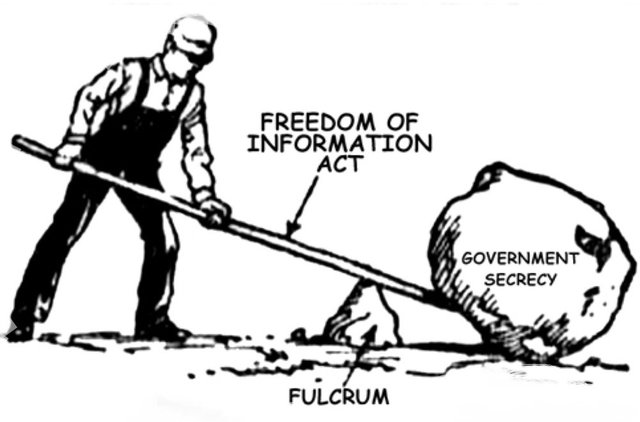#Perspectives today beams its search light on the access to public information from public offices in Africa
As a sequel to the Official Secrets Act, 1911, (OSA), the Freedom of Information Act, 2011, (FOIA) essentially amends the part of the Act of Parliament that impedes “the right of any person to access information which is in the custody or possession of any public official, agency or institution.”

The OSA designed to protect Government secrets and by extension the citizens against substantial invasion using information heist in the 20th century has obviously outlived its relevance as it is already being used to withhold necessary information from the citizens it is meant to protect.
This increased secrecy has been identified as a prime **”Corruption Enabler” in the country. The novelty in the FOIA empowers every citizen with the right to access public information with government or its MDAs.
The design of the FOIA also shield the individual enquiring public information from divulging the purpose to which such information is intended to be used – this means such individual have the “choice” to keep such to him or herself.
Provisions of the FOIA
The FOIA has included in the draft certain privileges and limits to guide the process for accessing public information. Some of the guiding principles are highlighted below;
• It sets a limit of 7 days for response to access requests;
• Criminalizes the destruction of records;
• Mandates public institutions to proactively disclose information within its custody;
• Protects whistle blowers in public service who release in good faith any information pursuant to the FOIA, especially when there is a failure of public duty, abuse of power, mismanagement of public resources or corruption.
Freedom of Information in Africa
Events at the turn of the millennium has significantly increased the drive for transparency in governance across the globe. This wave of transparency and accountability, albeit slow, has not completely elude African nations.
Nigeria in 2011 joins sevem other African nations that have enacted the Freedom of Information as a guiding law within the public institutions. A comprehensive list of nations and year of enacting the FoI law;
| S/N | Country | Year |
|---|---|---|
| 1 | South Africa | 2000 |
| 2 | Angola | 2002 |
| 3 | Zimbabwe | 2002 |
| 4 | Uganda | 2005 |
| 5 | Ethiopia | 2008 |
| 6 | Guinea Conakry | 2010 |
| 7 | Liberia | 2010 |
| 8 | Nigeria | 2011 |
Looking Forward
Only informed citizens can hold the public office holders accountable of their actions as custodians of public wealth. While there is still a lot to be done in Africa in promoting transparency in governance (only 8 out of 54 countries have a law to promote access to public information), the design of the law as it is today in the 8 countries is still far from being flawless. Citizen awareness of this laws is also a crucial part to ensuring the success of this novel law.
Have you ever been able to access public information from your national government? Do you have a working knowledge of your rights to information as included in the FOIA?
Kindly share your experience in the comments section.